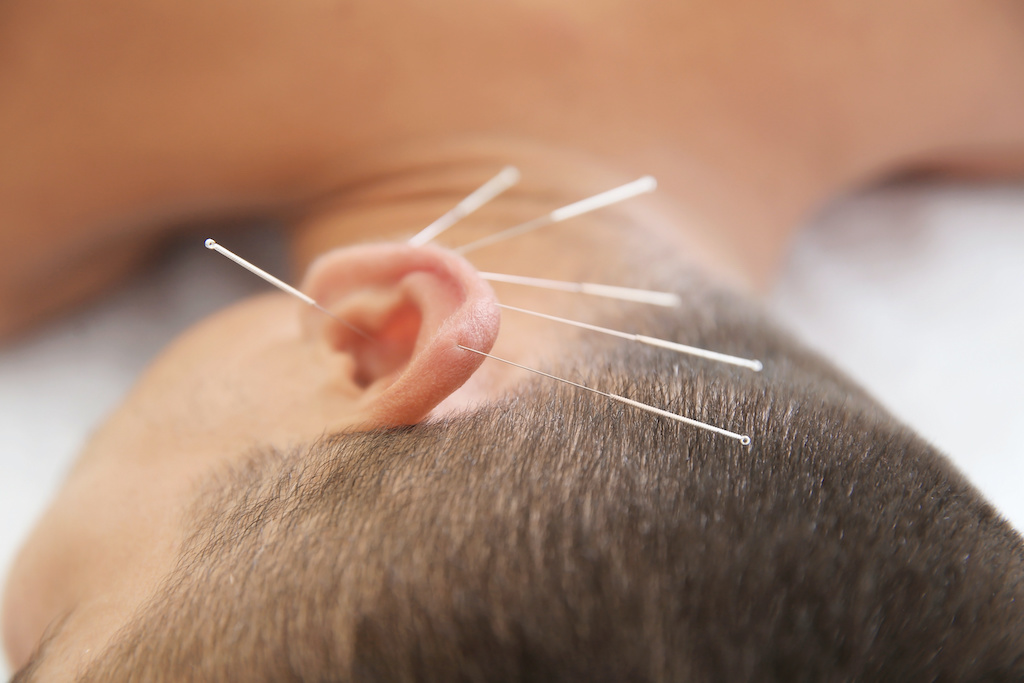Acupuncture is an ancient practice originating from traditional Chinese medicine, offering multiple health benefits, including boosting one’s sporting performance. Here is what you need to know about implementing acupuncture before a sporting event.
What is acupuncture?

Acupuncture is a healing technique that has been used for at least 3,000 years and is one of the 5 pillars of ancient Chinese medicine. It is based on the belief that an energy (or life force) flows through the body, with imbalances or blockages being the root of different health disorders.
The basic principle is that the body contains 12 interconnected meridians; channels through which vital energy is distributed, each one being associated with one or more organs (liver, kidneys, stomach, heart, intestines, bladder, etc.). Acupuncture involves acting on specific pressure points located on these meridians to restore optimal circulation of Qi, the energy that flows through the body.
The stimulation of the pressure points is often carried out by needles, inserted into the skin by an expert acupuncture practitioner. The needles remain in place for 15 to 45 minutes. However, there are also other methods: Light, heat, suction cups, hand pressure and so on.
What are the advantages of acupuncture in sport?

In a sporting context, acupuncture offers many advantages, as this technique is often used for physical and mental training of high-performance athletes:
- Reduces anxiety before a competition.
- Alleviates stress and improves general health, both mental and physical.
- Provides support during muscle recovery and minimises joint stiffness, aches and pains.
- Reduces pain and accelerates healing after sports injuries, such as tendonitis or sprains, thanks to its anti-inflammatory and pain-relieving effects.
- Improves sporting performance: Endurance, strength, energy, resistance to fatigue, oxygenation of the muscles, alertness during the event, etc.
Acupuncture has long been used by Chinese athletes before competitions to combat stress and boost their sporting performance, and has been the subject of scientific studies demonstrating significant changes in athletes who have benefited from it:
- Reduced cortisol (stress hormone) levels.
- Positive changes in the levels of certain biological elements, such as haemoglobin and creatine kinase (CPK).
- Better metabolisation of lactic acid.
- Improved blood flow, thus increasing the supply of nutrients to the muscles during exercise.
- Lower perceived exertion rate.
- Reduced muscle tension.
- Other benefits.
Where, when and how to practice acupuncture

Acupuncture can be very useful for athletes of all levels. Sessions are carried out in the office or at home, by qualified practitioners or therapists. Before getting started, the practitioner arranges a consultation to understand why you wish to use this technique and a general assessment of your state of health. This method can be used as a supplement or accompaniment to traditional techniques, with a doctor’s consent, especially in the case of major health problems. The effectiveness of acupuncture is particularly recognised for pain management.
Here are 7 key points to know if you are considering sports acupuncture:
- It may be necessary to schedule several acupuncture sessions, depending on your goals.
- The insertion of the needles is painless because they are barely thicker than a human hair. Most of the time, the needles are made of stainless steel for single use and of course, sterilised.
- It is not advisable to schedule a sports session 2 or 3 hours before or in the hours following an acupuncture session.
- To maximise the effects of acupuncture, remember to hydrate properly after the session to boost energy flow and optimise the body’s lymphatic drainage.
- Ideally, plan your acupuncture sessions at the end of the afternoon so that you can go straight home afterwards to rest.
- In some cases, the problems may become slightly worse after a session: Unless there is a worrying symptom to report to your practitioner, this is completely normal and does not last. Conversely, in most cases, you will feel perfectly relaxed after an acupuncture session.
- Acupuncture is a safe and effective technique. However, as a precautionary measure, the WHO advises against acupuncture during pregnancy and in cases where there are coagulation disorders, cancerous tumours or medical emergencies.
Check out our Health & Fitness page for more advice.
